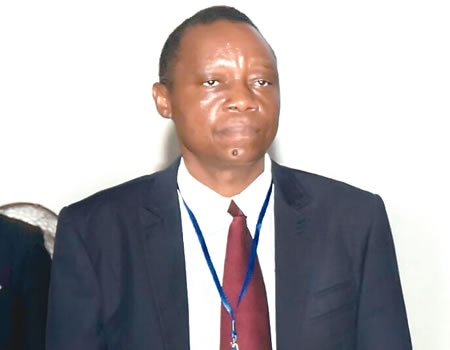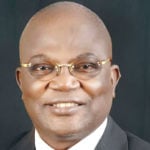Head of Department of Political Science, Obafemi Awolowo University, Ile Ife, Professor Sat Obiyan assesses the Eighth National Assembly in the last two years and submits that the institution, despite the challenges it faced, has made some progress in this interview with DARE ADEKANMBI.
IN two years, would you say the National Assembly, which costs the country about N150 billion every year, has justified this huge money in term of delivery of service to the people?
There is no doubt that the current National Assembly has had challenges because it is obvious that there have been issues within the institution itself and then its relationship with the executive arm of government, which, at some point, has been problematic. We need to appreciate the fact that this is still a fledgling democracy and usually there will be teething problems, even though we expect that by now we should have moved beyond where we are at the moment. But on the whole, we can say that some progress has been made. For example, the Petroleum Industry Bill which has just been passed into law, as imperfect as it seems, represents progress, especially when viewed against the fact that the Bill has been in the National Assembly for a long time. When we look at it from this point of view, we will notice that, in spite of the challenges, there has been some progress. That is one aspect.
When we also look at the relationship between the National Assembly and the Executive Arm of government, we know it has not been quite healthy. This is due largely to the inability of Executive and the ruling party leadership, I will argue, to concede to the National Assembly its right to choose its leaders. That was a major problem at the beginning and the aftermath of the problem was not properly handled. I think that also affected them. So, the intra-party crisis did not really help the matter in that regard. Hopefully, within the next two years, the National Assembly will be able to move faster than they have done in the last two years.
The National Assembly has naturally scored itself high through the number of bills it has passed and the number of resolutions reached. Do you agree with them in this regard?
Like you said, there is the tendency to rate oneself high and you can’t rule that out. On the whole, I don’t think they have done badly. But certainly it could have been better. The fact that they have not been able to reach the level that we expect them to reach is also a function of the issue of the relationship with the Executive Arm, which created a crisis. Of course, we all know the Senate President, Dr Bukola Saraki, is today still standing trial. SO, we can’t pretend that this did not affect the National Assembly. However, some progress has been made, especially if we also look at it from the point of view of oversight function. Take for instance, the issue of alleged contract inflation against the Secretary to the Government of the Federation, Babachir Lawal. It was the Senate that raised this issue and this is what the National Assembly should be doing when we take of oversight functions. They are to raise issues wherever there is need for such issues to be raised and do investigation and they have done well in this area.
The issue of budget continues to recur; what people generally call budget padding. We have had this issue since the beginning of the Fourth Republic. But my argument on it has always been that it may also be as a result of the ambiguity in the constitution. The National Assembly has always argued that they have the constitutional right to insert items into the budget. But the Executive will say “no.” Perhaps, this should be subjected to a judicial review and seek the interpretation of the judiciary on the matter. On the whole, while we recognise that the overall responsibility of the Executive is to drive government policies, the National Assembly also has the fundamental right to examines those policies in line with the constitutional requirement, especially on things that involve spending on public funds.
What should be the appropriate barometer with which to gauge the performance of lawmakers- should it be the quantum of their constituency projects, the number of bills passed or the impact of the laws made on the welfare of the generality of the citizens?
I think on the whole we need to also understand the function of the legislators- lawmaking, oversight function and representation. In terms of lawmaking, what is the quality of the laws they have made? In other words, what are the implications of the laws for the wellbeing of the citizenry? But let us also not forget that most of the bills passed are government bills and this is where the need for synergy between the National Assembly and the Executive really. The National Assembly must interrogate the contents of government bills before they are passed into laws. Their ability is also to ensure that those bills meet up to the standard that promotes the wellbeing of the populace. The bills must not be passed at the whims and caprices of the Executive. Pn the oversight, we look at what issues they have been able to bring out in the implementation of government policies, such that will enhance efficiency and effectiveness in the Executive Arm. These are very crucial issues. And of course, comportment is also necessary so that we do not have to watch they fight over money. But I think on the whole, there is no single criterion that is sufficient to measure their performance. We have to look at the totality of the indices.
Not a few Nigerian have expressed dissatisfaction with the National Assembly members and there’s been a recurring proposal that we should make lawmaking in Nigeria part-time. Do you subscribe to this proposal?
I think the starting point for us is to interrogate what type of government and the structure of government we want. This is a very germane issue. What type of National Assembly do we really want to have? I think this important. I don’t disagree with those who canvass this proposal. If properly worked out, a part-time lawmaking could be a good step. People who will go to the National Assembly should be people who are doing well in their profession. Such people will be able to make greater impacts in office and that will be good, as they already have the job they are doing and so we bring them in to make even better impact. If it is not thoroughly worked out, it will just be the normal typical Nigerian thing. that whichever option you bring forward they have a way of corrupting everything and then you begin to ask for a different thing entirely, the other thing to also say is even in its present form it should be structured in such a way as to make it more effective and less expensive it means we can retain the structure with substantial reform I think either ways very importantly we can stream line and package it in such a way as to enhance social efficiency and effectiveness.
What specific areas would you want the National Assembly to focus on as they begin another journey?
I have seen they have a role to play in terms of making contributions into the processes that will ensure credible elections and this is very vital. What we have been seeing in many instances is not the best. Therefore, in the National Assembly we expect that they will be able to support the Executive in areas where they bring up issues on policies that will enhance the welfare and security of the country. I think they will have to focus on this and of course they also expect that inefficiencies are removed as much as possible. I think all of these are important for them as they move on. In the education sector, we expect they are able to come up with laws and resolutions that will remove problems in this area. We know the economy is in a bad state; they should do whatever they can do address this too.
WATCH TOP VIDEOS FROM NIGERIAN TRIBUNE TV
- Let’s Talk About SELF-AWARENESS
- Is Your Confidence Mistaken for Pride? Let’s talk about it
- Is Etiquette About Perfection…Or Just Not Being Rude?
- Top Psychologist Reveal 3 Signs You’re Struggling With Imposter Syndrome
- Do You Pick Up Work-Related Calls at Midnight or Never? Let’s Talk About Boundaries






